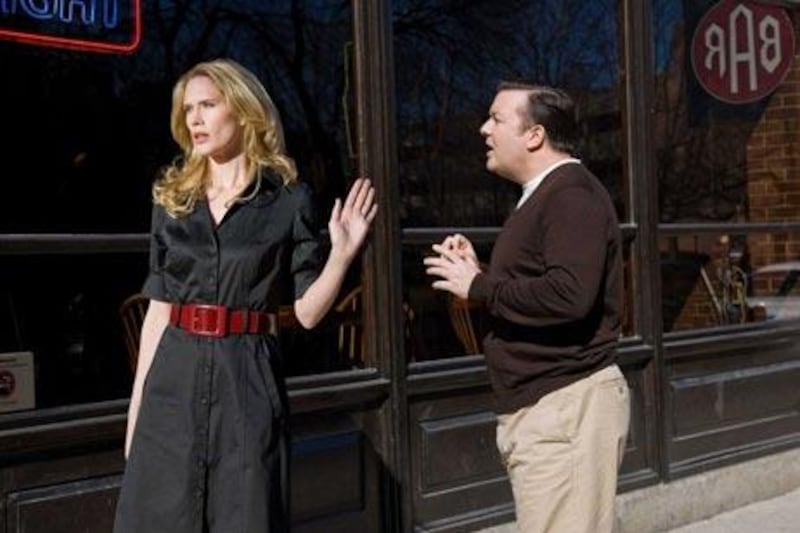The biggest fib in The Invention of Lying is the one told by Ricky Gervais - who, as well as starring, co-wrote and co-directed - over the opening titles. This story, he intones, takes place in a world where the human race has never evolved the ability to tell a lie. Mark (Gervais) loses his job writing the historical narrations that pass for cinema in this truthful world. Needing to pay his rent, he has a brainstorm in the bank and tells the world's first whopper to convince a clerk to give him extra cash. With this power, Mark sets out to charm the dim-but-cocksure Anna (Jennifer Garner). Gervais is no actor - as always, he's David Brent redux. That's not necessarily a bad thing; the film's best moments are essentially stand-up routines as he tests the limits of his new-found ability. But as a romantic lead, he's lost. Tina Fey and Rob Lowe are thrown away in bit parts, and even a jokey insert with Gervais's old muckers Stephen Merchant and Barry from EastEnders feels out of place. The bigger problem, though, is with that central canard. The plot is so contrived it needs to tweak its own rules as it goes along, so not only does everyone have to tell the truth, they have to speak all their inner dialogue (except when they don't). They have to be incapable of comprehending an honest mistake (except when they can). And they have to be utterly shallow, dividing the world into good-looking winners and short, fat losers (except when they don't). All this semantic wriggling leaves the viewer confounded and only rarely entertained. And that's no lie.
The Invention of Lying
The biggest fib in The Invention of Lying is the one told by Ricky Gervais - who, as well as starring, co-wrote and co-directed - over the opening titles.

Editor's picks
More from The National




